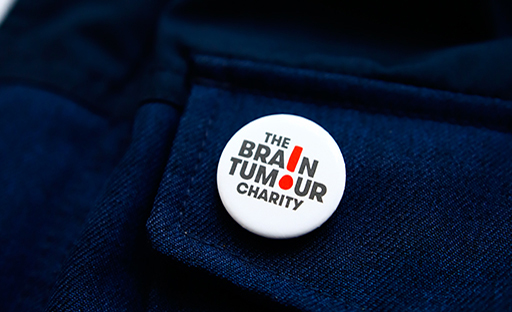Our Policy & Public Affairs team works to ensure that your voice is heard across the UK on important issues relating to brain tumour care. Sometimes this means responding to topical issues, such as Brexit, or feeding into plans for the future. Here’s a quick update on what we’ve been up to so far this year.
Our work in Scotland
Last month, Helena, our Policy & Public Affairs Officer, was in Scotland meeting with policymakers and members of the brain tumour community.
We were delighted to hold the third meeting of the Scotland Steering Committee at DWF in Edinburgh. This committee brings together people affected by brain tumours to establish ways forward to improve outcomes for the Scottish brain tumour community.
High on the meeting’s agenda was the recent support from Fife Council. Councillors unanimously passed a motion to support the HeadSmart campaign at a meeting in March. This means that the campaign can now be shared across Fife. The group are working to establish the best way forward.
We’re delighted that Cllr Ryan Smart is now working as part of the steering committee to ensure earlier diagnosis for children and young people. A sub-group will focus specifically on this topic.
In other news, Helena had meetings with three MSPs, Edward Mountain MSP, Alexander Stewart MSP and Miles Briggs MSP. These meetings were a chance to share the progress of the Scotland Steering Committee so far and discuss ways in which they could continue to support The Charity’s vital work.
Our work in England
In February, we co-signed a joint letter with 11 other cancer charities to the Secretary of State for Health and Social Care, Matt Hancock MP, over concerns around Brexit. This illustrated the sector’s concerns in relation to how cancer research may be affected by Brexit.
Last month, we received a response from Stephen Hammond MP, who is the Minister of State for Health and EU Exit Ministerial Lead at the Department of Health & Social Care.
The response set out assurances and procedures around the supply and stockpiling of medicines as well as the continuation of UK-EU clinical trials. It also covered broader medical research matters. Many within the research community are concerned about the implications of Brexit on the research landscape.
The brain tumour community is also understandably worried about the impact that Brexit may have. This is why we will continue to monitor the situation as negotiations continue and provide regular updates when anything changes.
Earlier this year, two of our Young Ambassadors attended the All Party Parliamentary Group on Children, Teenagers and Young Adults with Cancer (APPG CTYAC). This enabled them to find out more about what happens at Westminster and to share their thoughts on the future of cancer treatment and care for young people.
We’ve also had meetings with MPs at Westminster to highlight issues that affect the brain tumour community.

Campaign with us
We’re launching an exciting new campaigns programme and are looking for supporters to help spread the word about the issues that affect our community.
Our work in Wales
In May, The Charity held the first ever roundtable on brain tumours in Wales which brought together a wide range of stakeholders within the brain tumour community. The event, hosted at the Welsh Assembly, was sponsored by Dawn Bowden who is an Assembly Member for Merthyr Tydfil and Rhymney.
It was an opportunity for healthcare professionals, patients and carers to come together to discuss what the approach should be for overcoming challenges in the Welsh health system.
Attendees shared a range of experiences and three consistent themes emerged:
- Patients and carers reported a lack of coordination along their care pathway. Those affected must be given clear and concise information.
- There was a consensus that conversations around palliative care should start earlier on the pathway. This enables people to take control of their care.
- Patients noted that appropriate rehabilitative follow-up care is lacking for our community in Wales where there is no dedicated neuro-specific rehabilitation team. Much of the offer available is community-focused and patients need specific care plans to manage challenges.
We will now continue to advance this work and ensure that the people affected by brain tumours in Wales get equal access to the best treatment and care possible.
Our work in Northern Ireland
In March, The Department of Health revealed it is to commission a new cancer strategy for Northern Ireland. The aim will be to ensure that new ways are found to make advances in relation to cancer care.
We’ll continue to monitor this and ensure our community’s voice is heard, as the cancer strategy is developed.
